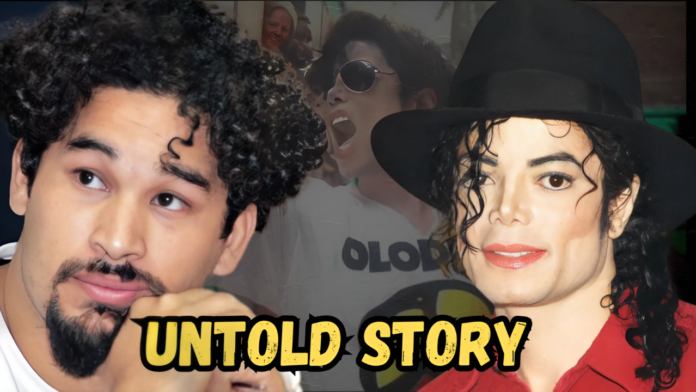Michael Jackson, the legend of music has a record of most famous videos ever made. However, one particularly fascinating video from 1996 has an intriguing backstory. During his career, Michael Jackson was known as the ‘King of Pop’. He made many incredible music videos like Remember the Time, Bad, Smooth Criminal, Billie Jean, and Stranger in Moscow. Each song had its own style and was great for different moods and occasions. But the video for They Don’t Care About Us, filmed in Brazil has an intriguing story. It was directed by Spike Lee and shot in a favela in Rio de Janeiro. Filming there wasn’t easy, even for a superstar like Michael Jackson and you know it was not as clean as we think. Let’s get into the details.
Michael Jackson’s stardom soared to extraordinary heights, making him a global icon. Born in 1958, he became known as the “King of Pop,” with his music and dance captivating audiences worldwide. His album “Thriller,” released in 1982, became the best-selling album of all time. Jackson’s influence extended beyond music with his dance moves, especially the iconic moonwalk, set new standards in performance. His one of the music videos they don’t Care about us released in 1996, was filmed in two main places: a Brazilian slum and a prison. The favela scenes were shot in Rio de Janeiro, Brazil, and they caused quite a stir because they showed poverty and police brutality, which made some people uncomfortable. In this video we’re going to talk about the Brazilian version of they don’t care about us.
Social and historic background of Brazil
Favelas are poor neighborhoods where people live when they can’t afford better housing. They’ve been around since the 19th century, starting small but growing over time. Usually found on hills where it’s hard to build good houses, they’re home to many who face discrimination and struggle to find jobs because of where they live. In the past, especially during the dictatorship, the government tried to get rid of favelas by tearing them down, ignoring that people had no other options. Sadly, these areas are often ignored by the government, with the only interaction being through the military police, who often treat everyone as criminals. The government didn’t provide basic needs like water and electricity to these areas, fearing it would attract more people. This neglect perpetuates the cycle of poverty and discrimination in Brazil’s favelas.
In the past, Brazil faced a tough time during the Cold War, when a military dictatorship replaced the elected president. This led to more inequality and violence, with the military being trained in harsh tactics by the CIA. The police, once used to target political opponents, continued to use force even after the dictatorship ended. In the 1980s, Brazil moved towards democracy, but life didn’t change much in poor neighbourhoods called favelas. The police still acted brutally, believing the end justified the means. Criminal groups, like Comando Vermelho (CV), took advantage of this, offering protection and services the government didn’t provide. CV and similar groups grew by recruiting people in prison and took control of neglected areas. They provided basic necessities like water and electricity, funded by drug trafficking. This became a big business because drugs, like cocaine, are valuable in rich countries. These criminal groups became the de facto government in these areas, fighting among themselves and with the police. They avoid targeting foreigners and small crimes but enforce their own justice system. This complex situation helps explain the violence in Brazil.
Marcinho VP
To start, Marcinho VP wasn’t the overall leader of Comando Vermelho, but rather an important figure in the organization, overseeing a specific area controlled by CV. This distinction is important, especially when discussing his involvement in the Spike Lee music video (pic). Marcinho VP’s story is rooted in the era of dictatorship in Brazil. He found himself involved in drug dealing unintentionally, but stayed because it provided better for his family than any other job. Starting as a young delivery boy, he rose through the ranks until he became the leader of his favela, a role uncommon for drug dealers before the 1980s. As the leader of his region, Marcinho VP commands obedience from the locals and has a network of people watching over the area. He uses the money from drug trafficking to improve living conditions and support families of those involved in his operation. He also holds tribunals to address conflicts and punish wrongdoers. However, it’s important to note that there are no clear heroes in this narrative. The police are known for brutality and extrajudicial killings, even targeting those not involved in drug dealing. The complexities of this situation make finding solutions challenging.
The Video
Spike Lee was the one to talk to when it came to decisions for the making of the video, it’s like Michael was there just to perform. Marcinho VP knew a guy that worked at Skylight, the Brazilian production company that was going to record the video in Rio. This guy used to be a teenage robber, but gave up on the life of crime to become an independent movie producer, Marcinho VP knew him from his teen years. When Marcinho VP heard that Michael Jackson wanted to record in a favela, he talked to this contact and asked for him to push Dona Marta as the place to film. The final word would still be Spike Lee’s. There were 8 favelas that were possible filming sets, but Marcinho VP “eliminated” other 6 favelas as options, but it doesn’t explain what that means. In the end it was between Dona Marta and Rocinha, but Spike Lee chose Dona Marta because it was smaller and because of the view of Rio that Dona Marta has, it is surrounded by beautiful scenery.
After Spike Lee chose Dona Marta as the filming location, discussions began between the production company and the Homeowner’s Association (HOA) of the favela. However, Marcinho VP insisted that the HOA president consult with him before making any decisions, a common practice in areas controlled by Comando Vermelho and so the production started negotiating with him, though he did not spoke to them directly for his own security.
Marcinho VP gave his word that the place would be safe for Michael, he wanted the music video to make the people of the favela happy, and he also wanted the world to see his struggles. He even made a bold guarantee, stating that they we could lay $1 million on the street, and their film equipment, and no one would touch it,. despite being known as a dangerous criminal, Marcinho VP was actually a huge Michael Jackson fan. He made a banner for Michael Jackson’s arrival, the book says that “the Americans” didn’t want any journalists in the area, and Marcinho VP was happy to oblige, he didn’t like them either.
The music video required 50 unarmed men to work as security and to help carry things, Marcinho VP sent 30 of his drug dealers and the rest were unemployed young men who lived at the favela, once the newspapers let out that Dona Marta was chosen for the video, the Military Police required the list of names of the people who were going to work for the music video, and a lot of drug dealers who had criminal records were replaced so that they were not caught by the police. Just before the filming, three journalists tried to sneak into the favela undercover, but Marcinho VP’s crew caught them and brought them to him. Marcinho VP told them to get rid of cameras. One journalist begged for an interview, promising not to reveal Marcinho VP’s identity or the favela’s location. Marcinho VP agreed. Here are some highlights I thought were interesting –
“I am against the legalization of drugs, our people aren’t ready for that, drugs aren’t good, it deceives you and numbs you to social revolution. The ones that use it can’t see the things that are wrong in the system because they are enslaved”
“90% of the people in the favela make minimum wage (about 100 dollars back then), no one can live with that, basic groceries costs BRL114. Drug dealing inhibits those necessities. If I weren’t selling it, someone else would take my place, and that could be bad for the community, There’s a rap from Racionais MC, from São Paulo, that says “get away from the drugs and the easy things, read books” That’s what I want to pass on”
“Crack is very harmfull, I could make a lot of money with it, but I don’t want to harm people even more, besides it would be difficult to control my men if they were high on crack.”
“I am a chill guy, I am a professional at my craft. I feel worried, but not powerful. I want peace in my area, and I don’t want anyone taking it. I am no Robin Hood, I know what I do is wrong. I want to pass on to all young people, whether they are part of the movement or not, the idea of social justice. I was born and raised here, and I help those who need, so I get recognized for my work. I like going to war, but only when it’s necessary. If needed, I won’t think twice.”
“Personally, I hate kidnappings, I mean I was kidnapped 3 times by the police when they tried to extort me. My group doesn’t do that kind of stuff. But in a way, kidnapping works as a way to redistribute wealth, you can’t get away from this.”
“Brazilian police isn’t ready to deal with poor people. A policemen with an uniform and badge makes BRL300 a month, and becomes corrupt. When someone from the favela goes to jail, they are humiliated like a dog. The police put drugs in the people’s pockets to frame them. That’s how the military police works, if they don’t mess with us, we don’t mess with them. One of my men with a rifle in an alley here can go for a triple kill with a single shot, same way they do. The dealers kill among each other, but the police kills first to steal our hierarchy.”
“I have already been shot 8 times with a rifle, I am not afraid to die. I am a Catholic, I believe in God, I read the bible, but I didn’t like it. The bible shows a line of thought that has been holding people back for centuries.”
Back to the Recording of the Video
On the day of filming, Marcinho VP put up a homemade sign to welcome Michael. He then stayed out of sight, shaving his face, changing his hair and clothes so he wouldn’t be spotted by the police. Michael arrived by helicopter on the soccer field atop the favela, when Spike Lee and Michael Jackson arrived, Marcinho VP gave Spike Lee a shirt with the name of the 23 young people murdered by the police as a gift, and gave Michael a soccer ball that he wanted MJ to autograph. He didn’t speak directly to Michael or Spike though, since he didn’t want to call attention to himself, and he knew all eyes would be on them, still he watched Michael from a distance of 10 meters
The house that worked as Michael’s dressing room was reformed for Michael’s comfort, Michael required a new coat of paint, AC, new flooring, a bunch of stuff, so Marcinho VP chose the house that would serve for the job. The newspapers said it belonged to a lady, and it was actually the baby momma of one of Marcinho VP’s men who died, that’s why he wanted her house to be MJ’s dressing room, so she could keep a nice house. During the recordings everyone was trying to see Michael, but it is described as a happy moment. Marcinho VP’s security team kept watch around the perimeter to prevent any potential trouble from rival gangs, ensuring everything went smoothly. The police presence was outside the favela, as going inside often caused disturbances and unrest. After the recording of the music video, Marcinho VP received 5,000 dollars, out of that money 2,000 went to the two local day cares, 1,000 to the home owners association, 1,000 to the local Samba school, another 1,000 to build a medical centre, and then one guy at the samba school asked for more 700 dollars, which “the Americans” also payed for even though that guy didn’t contribute much to the video. The rented house got 300 dollars as rent, extras were not compensated . The reforms that were made for Michael’s confort didn’t last long, some AC machines were removed once production left and others stopped working within a week. The reforms were shoddy and the house didn’t look as nice for long.
Ironically Marcinho VP wasn’t as cold blooded or as big as the media made him out to be, but that interview put a target on his back, and made him and his importance grow much larger. He was sent to jail 8 days after the recording of the video, he tried to bribe the police, but failed. He still managed to escape jail not long after with some of his friends. the attention that the media gave him during this time made him a lot more famous, and gave him a lot of street credit.
The music video surpassed 1 billion views on YouTube by April 2023, becoming Jackson’s second video to achieve this milestone.
That was all for today, thank you for reading this blog. Make sure you check out the video below. Cheers!


